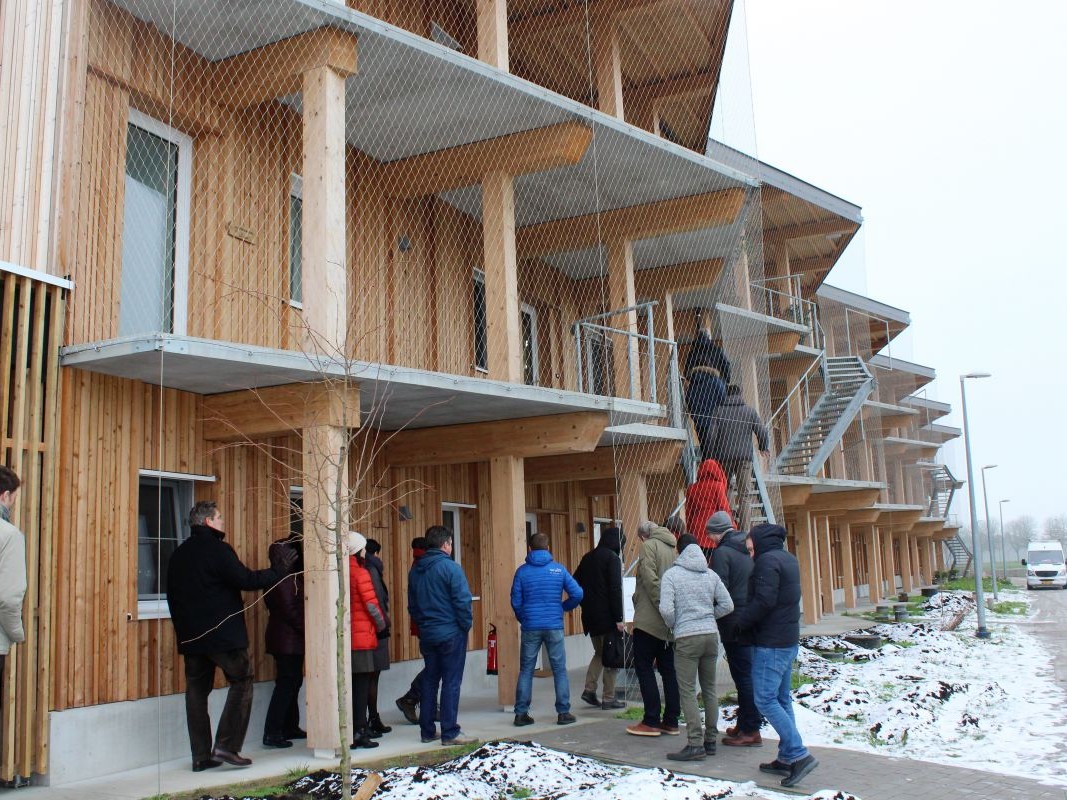Circular PSS business models arrive in Waasland (Belgium) with CIRCUSOL
The 2nd consortium meeting of the CIRCUSOL project has recently taken place in Antwerp (Belgium). This innovative initiative stands for “Circular business models for the solar power industry” as well as being a research and innovation action project funded by the Horizon 2020 Programme of the European Commission, which elaborates on the development of business models for a circular solar panel sector in Europe. CIRCUSOL aims to establish the solar panels sector as a spearhead sector to map out a path that is driven by Product Service Systems (PSS), aimed at a circular economy in Europe, and contributing to the Energy Transition. Among the various topics discussed was the second vision co-creation workshop (moderated by VITO), in which the consortium partners aligned on the vision of circularity in the solar power sector, and brainstormed on innovations needed (technical, business, social, regulatory…) to overcome the barriers and realise that vision. In addition, a lively panel discussion on the second-life PV business case was joined by two special guests: Dr. Karsten Wambach (Wambach Consulting) and Mr. Stefan Wippich (SecondSol). The participants of the consortium had also the opportunity to visit one of the CIRCUSOL demonstrators. The co-housing Waasland in Sint-Niklaas consists of 22 households, with plenty of community facilities and is co-created by residents sharing similar values, with the goal to incorporate a maximum number of sustainability elements. Furthermore, the residents want a robust renewable energy supply service at minimal investment and running cost as well as being interested in feedback on their energy consumption behaviour. In this case, Futech (a CIRCUSOL partner) gave some 200 used solar panels a second life by installing them on the roof to provide a solar system as a centralised service to the co-housing community. Co-housers of Waasland had the opportunity as end-users to participate in a co-creation workshop to share their opinion on how the CIRCUSOL demo can best meet their energy supply and consumption needs. This demo aims to demonstrate solar PSS value propositions for the Belgian residential market, a segment which has been dominated by conventional ownership. It also aims to evaluate technical feasibility and market potential of second-life PV (and batteries) for residential applications. Antwerp and Waasland has been this time the meeting place for the CIRCUSOL partners. Besides the visit to the demo site in Waasland, new steps for the project have been set and collaboration among partners of the consortium is fostering the achievement of news goals. The CIRCUSOL consortium is well balanced and consists of five research centres and universities, eight industrial players from the PV and battery value chains, and one consultancy firm. The group is led by VITO, established in Belgium. The other partners are: Lund University (Sweden), Bern University of Applied Science (Switzerland), IMEC (Belgium), Soli Tek R&D, UAB (Lithuania), SNAM (France), CEA Liten (France), Ecopower cvba (Belgium), PV CYCLE a.i.s.b.l. (Belgium), BKW Energie AG (Switzerland), Futech (Belgium), Daidalos Peutz (Belgium), ZABALA Innovation Consulting (Spain), and Loser Chemie GmbH (Germany). In the next months a new industrial partner will be incorporated to the team.
Keywords
Countries
Belgium, Switzerland, Germany, France, Lithuania, Sweden



